Read All Of The Books On The So-called "banned List;" I Myself Have Yet To Read Fahrenheit 451, But I
Read all of the books on the so-called "banned list;" I myself have yet to read Fahrenheit 451, but I know what's on my to do list.
More Posts from Arieso226 and Others
The Birth of Unions through the Black Gaze
NO. 1
During the 1940s, the past three decades beforehand for Black Americans have been life-changing: The Harlem Renaissance in the 20s, the Great Depression in the 30s, and then the inauguration of President FDR, who would eventually lead America into WWII, at the beginning of the 40s. Then came the Great Depression, and with it, economic downfall and loss. It devasted the economy, and millions in the country could not find jobs, nor could they keep it. Black Americans suffered harsher during this time since they couldn’t make ends meet; even those who still had jobs, labored in unskilled and service fields, regardless of their actual skills. And whether from the South or the North, these economic pressures made a significant decline in incomes to a third of what they had been in before the Depression.

NO. 2
‘’Wages had fallen to roughly 60 percent of their pre-Depression level. Declining demand followed the decline in earnings, speeding the downward spiral. The economic crisis affected everyone, black and white, rural and urban, skilled and unskilled. The federal government in 1930 estimated that 17 percent of the white population and 38 percent of the black population could not support themselves without assistance. White men took jobs held by black men, and white women took jobs held by black women, while privileged black folk who were financially stable toward their businesses and homes, lost them.’’ To Ask for an Equal Chance, Greenburg, pg.1-3

NO. 3
The ideas of President F.D.R helped, called New Deal programs increased the number of public jobs. Because these new agencies had nondiscrimination provisions, black workers at all levels of skill had a better chance to obtain these jobs than those in private sectors where racial discrimination remained. And even though black workers still worked in the same menial jobs they found in private employment, many government programs—particularly in northern and western cities—also hired black skilled, clerical, and professional workers, like black social workers, nurses, teachers, office managers, architects, engineers, and administrations, which they all benefited, and had a tremendous impact on black employment. And for the first time, 1932 Section 7A of the National Industrial Recovery Act (NIRA) guaranteed workers the right to organize unions, but when the Supreme Court declared it was ‘unconstitutional’, Congress passed the Wagner National Labor Relations Act, which extended 7A’s scope.

NO. 4
Industrial union organizers sought to engage all possible workers in the struggle for union recognition; when racist whites excluded black workers, organizers pointed out that employers hired the latter as strike bearers (scabs). Only by offering union membership to all, regardless of race, could unskilled and industrial unions succeed. Therefore, unions or their leaderships sought to actively recruit African American workers alongside whites. Among these workers? Socialists and Communists. Drawn to this movement, believing that the working class was the victim of an exploitative capitalist system, which the Depression made their arguments even more convincing. Only unity among all workers could overthrow the tyranny of their bosses, the parties insisted, and bring about economic change. They considered racism a tool the wealthy used to divide the workers and dilute their power, which drew in black Americans, welcoming them in through politics and the realities of organizing unskilled workers.

NO. 5
Some unions had already begun organizing around the principles that interracial unions advanced the interests of all workers, something the elite, racists like the Southern Klans and the police were fearful of. Black and white built the United Mineworkers Union, which from its inception in 1890. Since James Ford, a black Communist leader argued that union benefited and helped desperately, and unemployed black Americans, while including them improved the chance for successful organizing, and to better achieve their goals. Ford writes, ‘‘the organization of the people’s immediate needs, better wages, unemployment, and social insurance, better wages, civil and economic, and equal rights, the Communist Party worked on a Popular Front strategy of working with liberal groups when doing so advance its common goals. Therefore, Communists embraced all progressive union activists as coalition partners.’’

NO. 6
Unfortunately, the elite, wealthy, and racists in any work, but especially the police, disliked integration. Police beat, arrested, and even on occasion shot protesters and organizers, often assisted by other angry whites. The Georgia Klan, unhappy at the advancement of black textile workers as a result of a union drive, responded with a violent anti-CIO campaign in 1939, convinced that the communist agitators they were convinced, interpreting the Communists interracial union organizing as a Soviet plot to destroy the United States by undermining traditional race relations and stirring up otherwise ‘contented black Americans to demand equality they did not deserve and even worse—sought to bring down the white race by granting black men readily access to white women. Such rhetoric was used to preserve the economic advantages for white-middle and upper, and middle-class brought anti-union violence to disastrous new heights and bringing an end to what would have been the beginning of economic equity to all.

I’m live on fiverr as a freelance writer! I write for anything fictional (or educational) check me out! My packages are listed in the link down below!
https://www.fiverr.com/share/WQdW3R
Happy Easter everybody!


mhhmmm yea

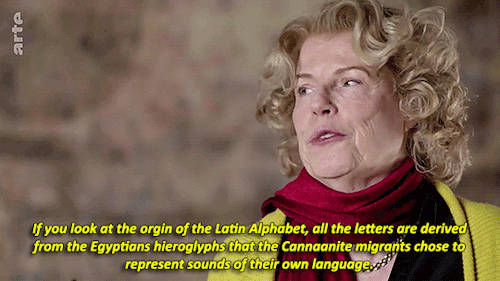
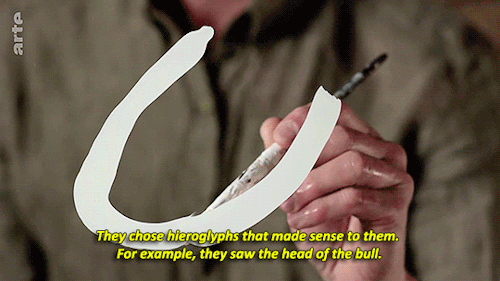
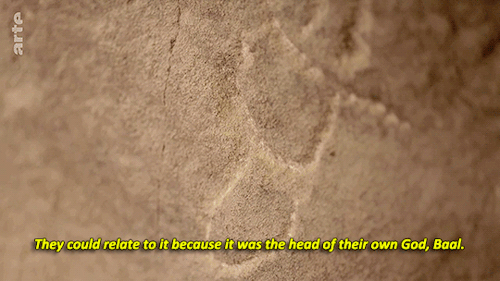
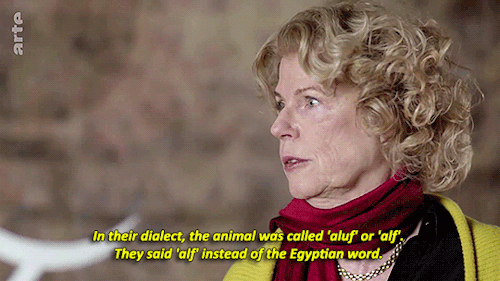
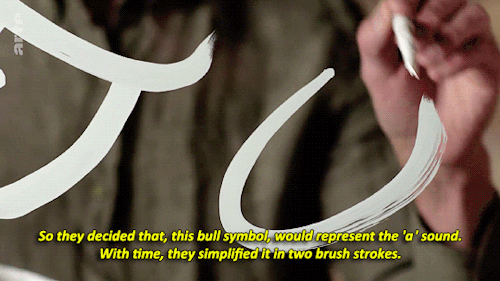



the origin of the letter 🇦
(from the documentary The Odyssey of the Writing, 2020)
where y’all at?
Find me here
Prevention through Deterrence.
What is Prevention through Deterrence? It is a strategy that the U.S Border Patrol implemented to make border crossing as difficult, dangerous, and expensive as possible, ultimately aiming to redirect migrants routes into the most inhospitable sections of the border, basically making the hot desert a weapon to discourage migrants from attempting the crossing at all.

The U.S has made it abundantly clear that migration through crossing the border is illegal, making policies after policy to dismay the crossing, including Operation Streamline, a joint initiative of the Department of Homeland Security and Department of Homeland Security and Department of Justice in the U.S started in 2005 that adopts a ‘zero-tolerance’ approach to unauthorized border-crossing by criminally prosecuting them; up to 70 people, locked together in handcuffs through hands and feet are shown before a judge before being prosecuted and sent to the state jail, which affects the economy since all of the space being taken up is being paid at taxpayer’s expense, and destroys the judicial system because justice is not being served, and instead becomes corrupt.

But then how did this all start? Why are migrants crossing the border in the first place? Because of colonialism and domestic violence, that’s why. Back in 1944, the allies like the U.S, the U.K, and France, etc. would connect their banks to the dollar, or regular paper money, making it the BrettonWood Agreement. The colonies under such big world powers, around the ’50s wanted independence, which caused immense turmoil for the world powers. The colonies wanted to rise independently, and could only do that economically. A man by the name of Jacobo Arbenz was elected president of Guatemala; he was a great military officer and politician. At this time he had drawn a land reform, where he wanted the U.S who owned land in Guatemala that they weren’t using to pay taxes and give that fallow land back to the Guatemalan government for land distribution. The U.S felt like they were being bossed around, and didn’t like that this small country was forcing them to give up their land’, so they, under the company United Fruit decided they couldn’t control this man, so they killed him and set a man who became a dictator by the name of Carlos Castillos Armas in his place. A series of coups and new presidents/dictators after Armas’s four years. It was only in the ’80s of Guatemala do things go from bad to worse, with the presidency of Rios Montt, who believes he was appointed by God.

The guerillas, a small attack force that was taking part in action against a large force, in this case, Montt, were being hunted down, killed, and tortured. In Guatemala, there are white Spaniards, brown Spanish people, and then the indigenous tribes called the Maya; some of the Maya, who lived in small towns away from the city, wanted to join and stop Montt, who became a dictator at this point. He believed that since the Mayan people had joined against them, then all of the Mayan people were guerillas. He, with the help of the U.S government, started the Scorched Earth Campaign, which was the legal use of killing and destroying every Maya and anyone else who was associated with the Maya, or the ‘guerillas’. 626 villages were burned down, and over 1.5 million were displaced, with many of them being children (kill the seed, a strategy of destroying the Mayan tribe.) People would hide in the mountains or they would migrate to Mexico or other countries, some able to migrate to the U.S.
I mention Guatemala because in the ‘Imaginarium of migration’, what we in the U.S think about these people who are crossing the border believe they do not just come from Mexico here to ‘steal our jobs’. They come from Guatemala, Chile, Brazil, Venezuela, etc. all over, so they could have a shot at supporting their families, and learn and be somewhat educated, then hope to go back home. So no, not all migrants are from Mexico, and not all of them are criminals. Many people are traveling through the desert knowing the risks and the dangers and doing so on the basis of hope that they could get through, hoping to find border patrol. Yes, they want to find border patrol, because border patrol offers them food, water, and shelter from the heat of the sun and the dryness of the desert. But sometimes many people do not even get that far, and their deaths become ambiguous because again, they have no rights; hundreds, if not thousands are dying in the desert.

Colonialism and nationalism also play a big part in how the U.S writes immigration policy. ‘’Give me your needy, your tired and your poor’’ is a regular statement and not to be taken literally. The colonialist/capitalist mindset is that people can come to the U.S, they just have to be white and rich. State/space of exception is the concept where human rights are negated. There is a space where people are reduced to distribution, where they don’t matter enough for anything a person in the U.S might take for granted because they are ‘alien/illegal’. Since there are no laws to protect them, they have no rights to be protected. And the rise of nationalism is what we've been seeing a lot since the presidential campaigns of 2016 when Trump was stated into office. Nationalism is the ideology and movement that promotes the interests of a particular nation, especially the aim of gaining and maintaining the nation’s sovereignty over its homeland, in this case the U.S. Nationalism holds that each nation should govern itself, free from outside interference, that a nation is a natural and ideal basis for a polity, and that the nation is the only rightful source for political power. This is why racism, fascism, and classism always follow closely after.
Information from Jason De Leon’s book, ‘‘The Land of Open Graves.’’


Happy Chinese New Year! The year of the tiger~
The teachings of Henry Highland Garnet vs. Fredrick Douglass
Henry Highland Garnet didn’t come up with the best ideas to counteract slavery and resistance against it, as his ideas were mixed with violence that critics like Fredric Douglass opposed for fear that it would ignite rebellions across the states that African-Americans could not win or face bloody white backlashes. But, something that black leaders like Douglass didn’t understand is that the demand for equal rights by appeasing the dominant elitist through morality, will simply not work. A great black activist during this time, Martin DeLaney explains that appeasing the dominant society through morality and common decency will not work because you cannot force your morals, no matter how right they are on a people, group, or individual who are unwilling to listen or hear. In other words, it isn’t morality that holds the reins, it is power, and that is true no matter what century we’re discussing.

First, we should get to know who Henry Highland Garnet was ‘‘born a slave on December 23, 1815, in New Market, Kent County, Maryland, and escaped with his family in 1824, was the grandson of a captured Mandingo chief. Garnet’s early education was in a segregated school on Mulberry Street in Manhattan. In 1835, he was in attendance at the Canaan Academy, a New Hampshire School, that was destroyed by a racist mob. Garnet, like other abolitionists during the 1840s, was critical in his assessment of the various emigrationist programs. That process, however, was an evolutionary one.’’

One of his best quotes, ‘‘Neither God nor angels or just men, command you to suffer for a single moment. Therefore it is your solemn and imperative duty to use every means, both moral, intellectual, and physical that promises success….(in Woodon 1925, 1969), one of his most radical statements in regards to slavery. The speech, the earliest extant speech by a black man advocating violence in America, entitled ‘An Address to the Slaves of the United States, was delivered before the National Convention of Colored Citizens at Buffalo, New York, in 1862. Despite its significance of the speech and the speaker, Henry Highland Garnet is virtually unknown to students of American history’’. Garnet truly believed that the only way for slaves to gain their freedom from slave owners was to take it by force, by any means necessary, and Fredrick Douglass fiercely opposed such views, as he wanted to have all slaves be freed through non-violence and appealing to people’s sense of morality. The two went back and forth, Douglass wrote that educated men who followed Garnet’s ‘backwatered and destructive’ stance had no stomach for continuing the struggle against prejudice and ignorance in this country, and thus it was that they sought more congenial places so they could live 'peaceful lives'.

Nevertheless, Garnet inspired his people when it seemed like all was lost, a talent of his, as his voice was awe-inspiring, and people who were tired of being crushed under the weight of oppression who didn’t think non-violence was going to work, flocked to him during his weekly sermons. ‘‘There was something about his personality which few leaders possessed—the commanding presence which inspires courage and the will to fight through difficulties. In his personality were reflected the fire to genius of African chieftains who had defied the slave catchers and later rankled Southern bondage.’’

A hero can go anywhere, challenge anyone, as long as has the nerve
#percyjackson#heroesofolympus
-
 nicoleb1909 liked this · 1 year ago
nicoleb1909 liked this · 1 year ago -
 psycho-chomp reblogged this · 1 year ago
psycho-chomp reblogged this · 1 year ago -
 psycho-chomp liked this · 1 year ago
psycho-chomp liked this · 1 year ago -
 faithaoibh liked this · 2 years ago
faithaoibh liked this · 2 years ago -
 schonheit-ist-in-alles reblogged this · 2 years ago
schonheit-ist-in-alles reblogged this · 2 years ago -
 itusebastian liked this · 2 years ago
itusebastian liked this · 2 years ago -
 arieso226 reblogged this · 2 years ago
arieso226 reblogged this · 2 years ago
26-year-old Anthro-Influencer Anthropology, blogger, traveler, mythological buff! Check out my ebook on Mythology today👉🏾 https://www.ariellecanate.com/
208 posts
